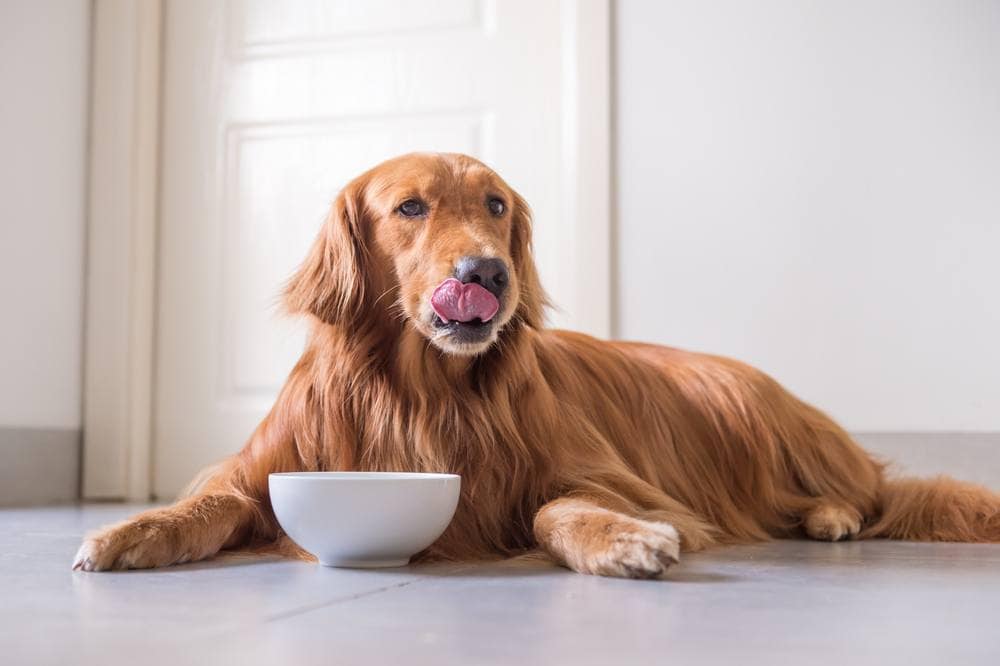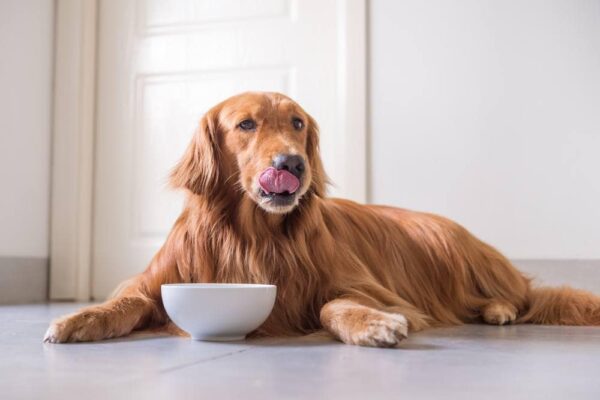Click to Skip Ahead
Some dogs love to indulge in human foods, especially those that they shouldn’t eat for health reasons. For example, nachos, tacos, pizza, and burgers are all things that canines seem to love the taste of—though they don’t seem to spend much time “tasting” anything that they scarf down!
Since dogs are not too picky when it comes to getting human treats, it’s a good idea to focus on the human foods that are the safest and most nutritious for canines to chow down on. Avoiding fatty and salty items like pizza and nachos and focusing on the following foods instead can help you keep your pup healthy and safe.

The 12 Healthiest Human Foods That Dogs Can Eat
1. Apples
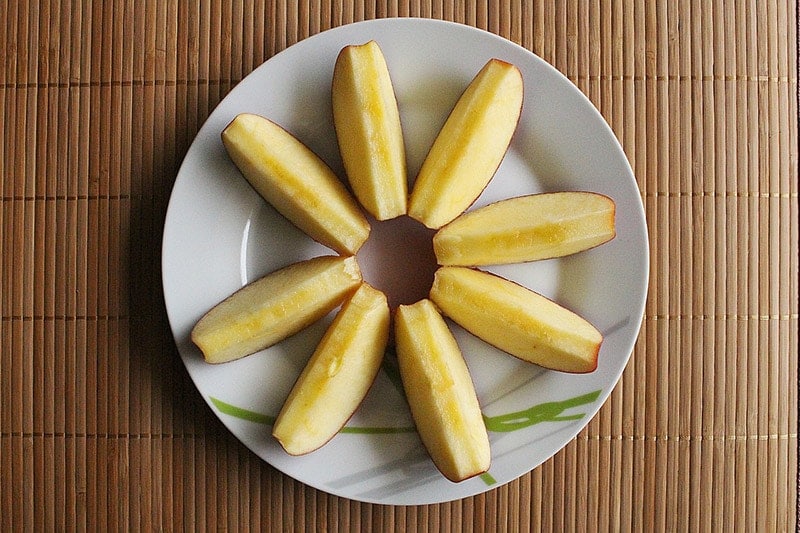
Apples contain vitamins A and C, which your canine companion can benefit from as time goes on. The fruit’s rough texture can help scrub tarter away from the teeth, and it’s a great natural breath freshener! That said, it’s best to remove the seeds of an apple before offering the fruit to your pup because these contain cyanide.
2. Rice
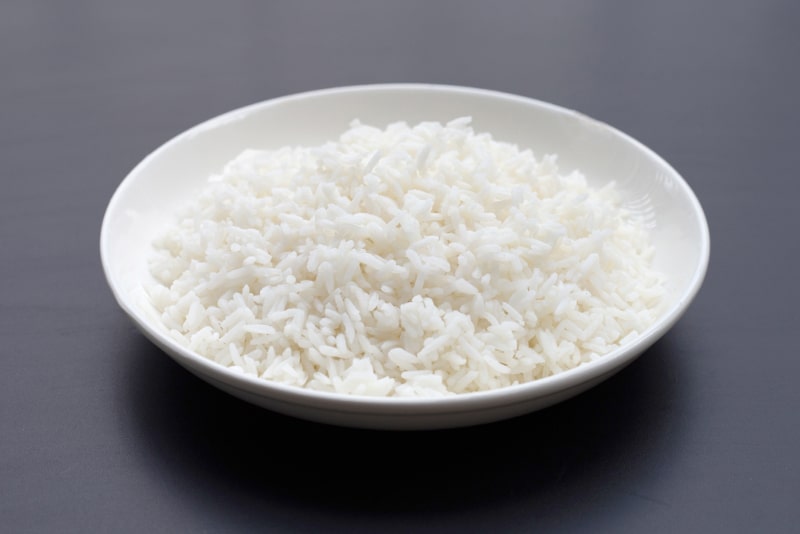
Rice is a popular food worldwide because it is cheap, hardy, and filling. Humans can benefit from eating rice, and so can dogs. It can even be found in many commercial dog food brands, both inexpensive and high-quality ones. Ill canines can benefit from eating rice because it is easily digestible and low in fiber, which can be beneficial for gastrointestinal distress.
3. Carrots
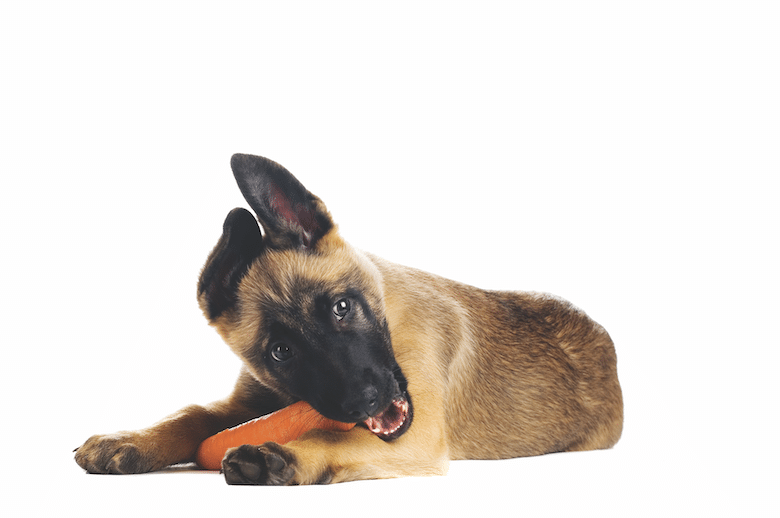
As long as your dog is healthy, a few bites of carrots occasionally should not be harmful to them. In fact, the vegetables can have health benefits for dogs when incorporated into their regular diet. Carrots are high in vitamins A and C and antioxidants, which are all things that dogs need to thrive. Both raw and slightly cooked carrots are suitable for canines.
4. Peanut Butter
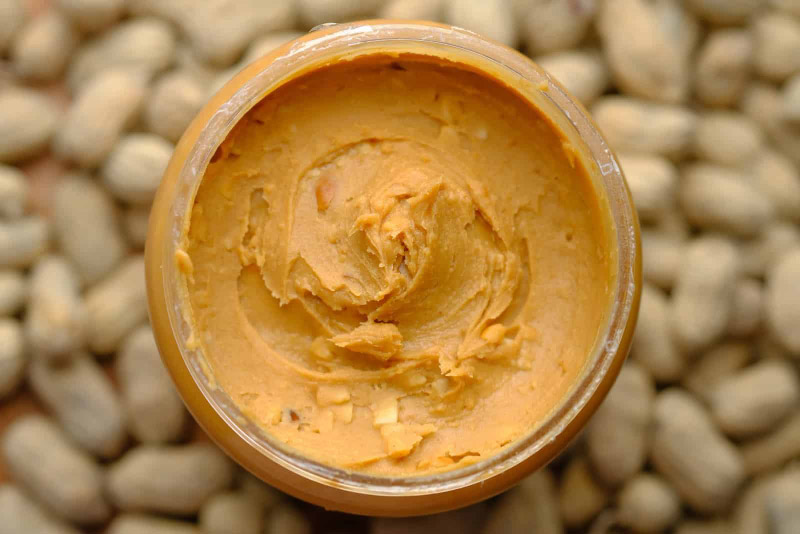
Natural peanut butter is safe to offer dogs as a treat. As long as no artificial sweeteners are involved and no salt is added, peanut butter is a delicious, protein-packed snack that dogs tend to love and that we can feel good about giving them. It can be offered as-is, blended into a doggy “smoothie,” or watered down and served as a gravy over a meal.
5. Fish
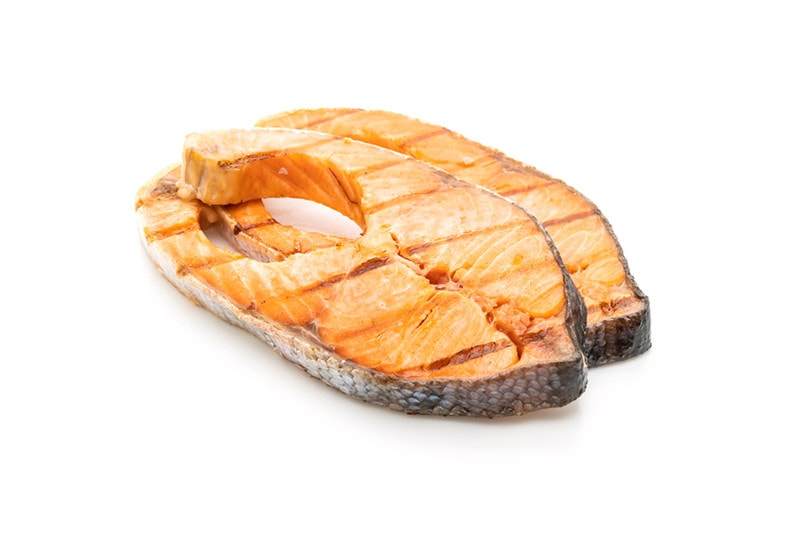
Fish is an excellent form of food for dogs, as it is high in protein, antioxidants, and omega fatty acids that are essential for proper growth and good health. Dogs love to smell fish, but they love to eat it even more. Offering a small amount of properly cooked fish as a snack or supplement throughout the week may help decrease body inflammation too.
6. Chicken
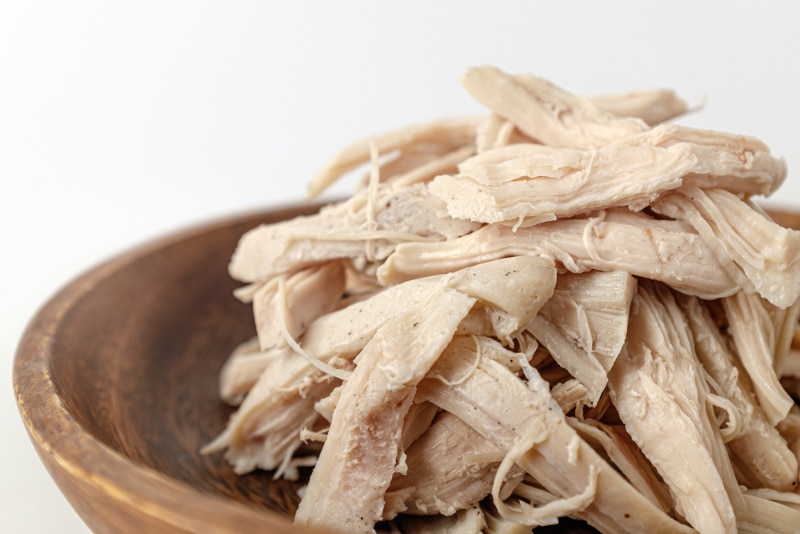
Chicken is a great source of protein for dogs. It also happens to be one of the most common ingredients found in commercial dog foods, both wet and dry. When offering freshly cooked chicken to your dog as a snack, make sure it is prepared without spices and herbs. It can be boiled and ground up in meals or cooked as breasts/wings/legs and offered in chunks as snacks.
7. Popcorn
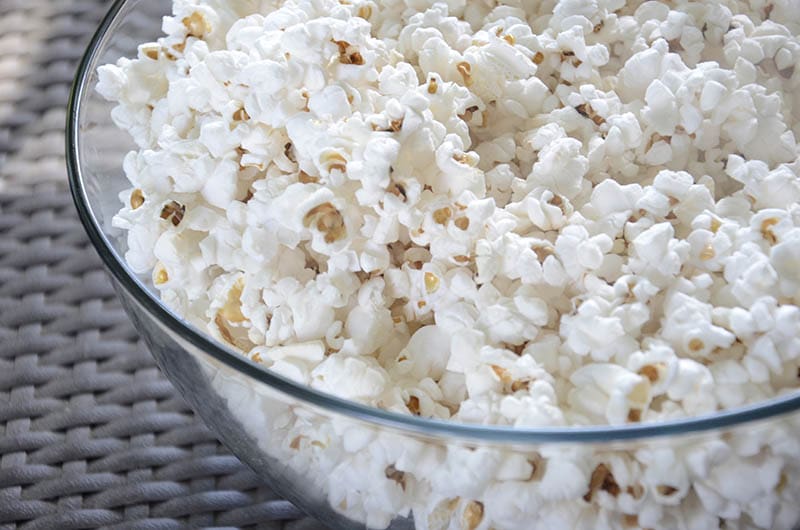
If it is consumed in small quantities, air-popped popcorn can be a safe snack for your pup. Popcorn that has butter or other toppings can be a problem, so just ensure that any popcorn that you give to your pup is plain and does not even have salt on it.
8. Blueberries
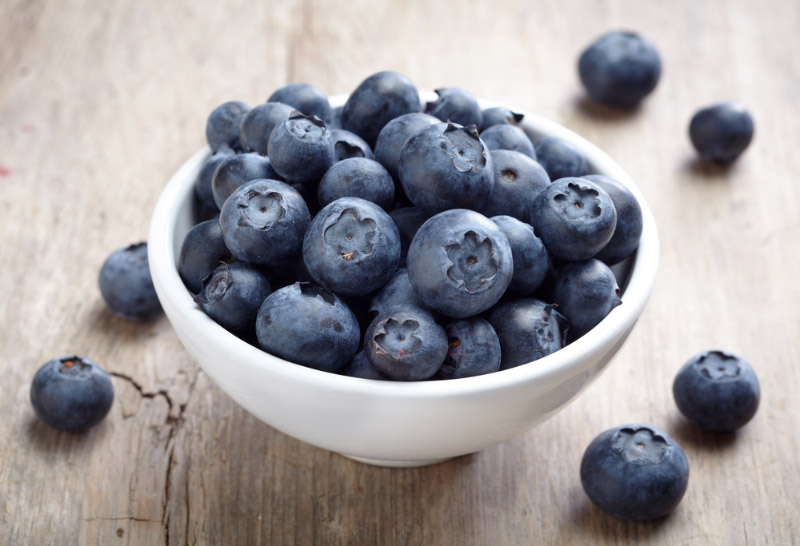
Blueberries happen to be excellent snacks for your dog to indulge in. They contain vitamins and minerals that are essential for aiding a dog’s good health (just like for humans!), and they have antioxidants that can help fight off cancer and other health problems as time goes on. Blueberries can be offered as-is if your dog likes them that way or included in a meal. Simply mix the blueberries into your dog’s dry or wet food, or mash them into a watery paste and mix it into the food.
9. Cucumbers
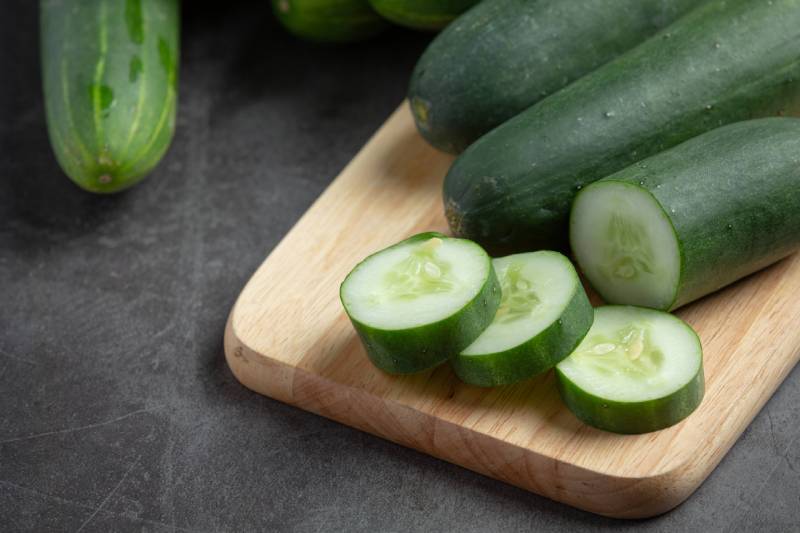
While an entire cucumber can be a choking hazard for dogs, slices of this fruit are perfectly suitable for healthy puppies and adult canines to sink their teeth into. Cucumbers contain lots of vitamins and a large amount of water, which is helpful when trying to get your dog to stay hydrated and fueled on a hot summer day.
10. Watermelon
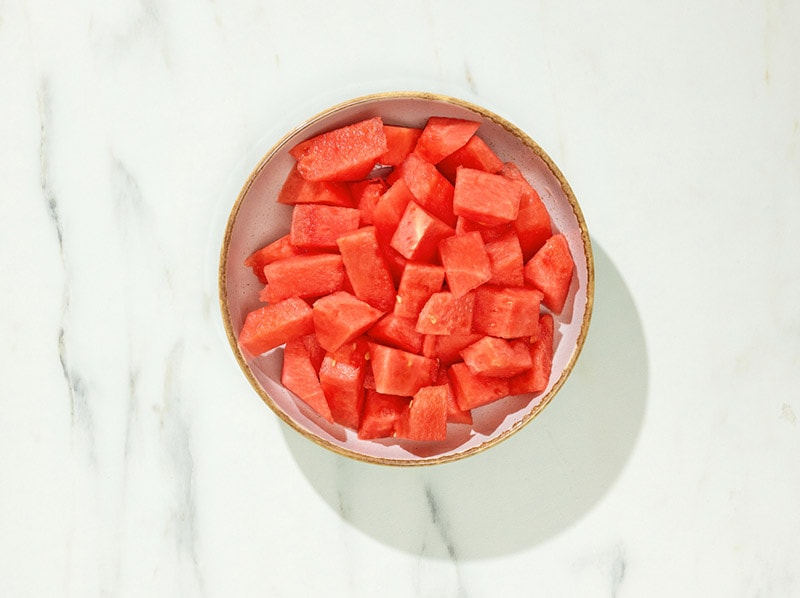
Your dog can eat a piece of the watermelon that you are cutting up in the kitchen, as long as it is seedless. Seeds and rind may lead to blockages of the intestine and should be avoided. However, when it comes to the actual watermelon flesh, a dog can chow down without much concern. That said, while the water and nutrient content is beneficial, it can be overwhelming for dogs that are not used to eating such fresh, water-filled foods. Therefore, watermelon should be introduced slowly and not offered as anything more than an occasional treat.
11. Pumpkin
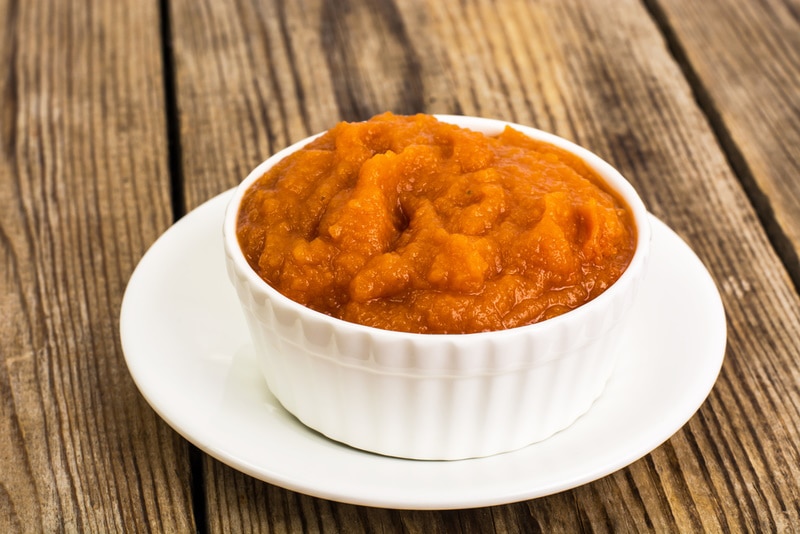
Some veterinarians consider pumpkin as a canine superfood because it is filled with fiber and micronutrients that can help correct and avoid digestive problems. Canned or home-cooked plain puréed pumpkin helps to naturally soothe the stomach and remove excess water that is inhibiting the digestive system. Pumpkin can be offered up as bite-sized treats or mixed into meals as a supplement.
12. Oatmeal
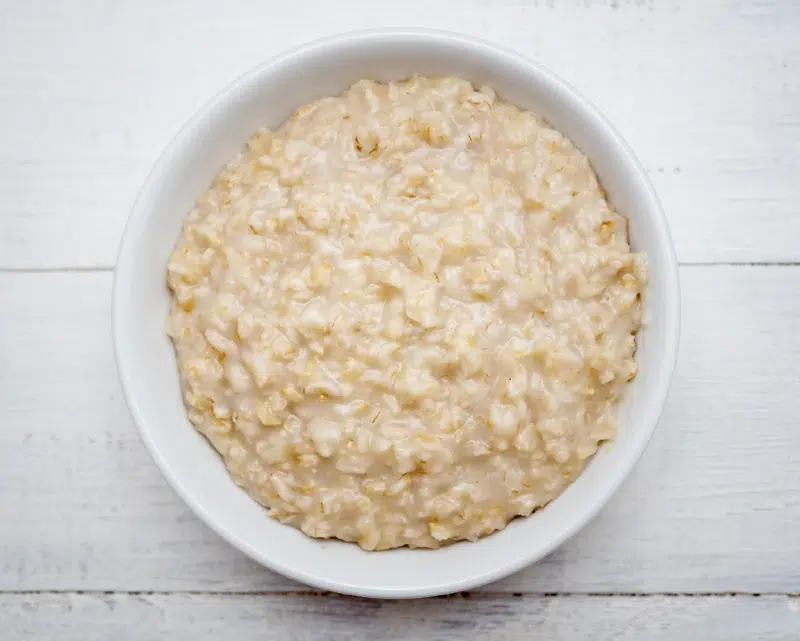
When fully cooked, oatmeal can be a healthy carbohydrate addition to your doggy’s diet. This whole grain provides a boost of fiber to help ensure regularity when it comes to bowel movements. There are no specific nutrients found in oatmeal that are touted as being specifically beneficial for dogs, but it is not unhealthy for them. So, if your pup likes it, you can offer it occasionally.

Restaurant and Fast Foods Are Not Good for Dogs
Typically, restaurant and fast foods are filled with preservatives, calories and seasonings that are not good for dogs. For instance, both garlic and onion are considered toxic to canines. Many foods bought at restaurants and fast food joints are filled with these ingredients, and while these are fine for most humans in moderation, they are not safe for our canine companions.
Human Foods That Dogs Should Never Indulge In
There are several human foods that dogs can safely eat, but there are others that can be a threat for one reason or another.
- Macadamia Nuts — These are poisonous to dogs and can cause problems like vomiting, lethargy, and an inability to walk. These signs can end up affecting the nervous system and result in a stay in the hospital—or worse.
- Grapes/raisins – Grapes and raisins can be very toxic to dogs, potentially causing kidney failure.
- Chocolate — Sadly, dogs cannot enjoy chocolate like we humans can because it is poisonous to their systems. They simply cannot metabolize the compounds in chocolate in the same way that we can. Both the caffeine and theobromine found in chocolate negatively affect dogs.
Remember, All Foods Should Be Offered in Moderation
Even foods that are considered safe or healthy for dogs should only be offered in moderation and in addition to their regular diets. Just because your dog enjoys watermelon does not mean they should have daily access to it. Instead, they should get a few small pieces of the juicy fruit once or twice a week to ensure that they have room for more nutrient-rich options. Keep in mind that even nutrient-rich foods can become unhealthy when they become a predominant part of a dog’s diet.

Conclusion
The key to creating a dog’s diet and meal plan is to include plenty of healthy options so they don’t get bored while avoiding stuff like garlic and chocolate that can cause harm. It’s all about moderation of the good stuff and avoidance of anything that could cause problems.
Featured Image Credit: Chendongshan, Shutterstock

